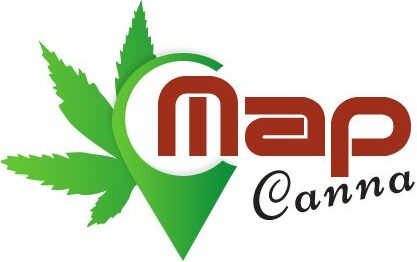New York has taken significant steps in cannabis legalization over the years, leading to new opportunities for businesses and consumers alike. Since the passage of the Marihuana Regulation and Taxation Act (MRTA) in March 2021, adults over the age of 21 can now legally purchase, possess, and transport cannabis within the state.
While legalization has opened the doors for recreational use, regulations surrounding cannabis sales, licensing, and cultivation are still evolving. Understanding these rules and guidelines is essential for both consumers and those looking to enter the cannabis industry.
New York’s Cannabis Legalization Journey
New York has had a complicated history with cannabis laws, but recent legislative changes have shifted the market toward a regulated and structured industry.
Early Decriminalization Efforts
In 2019, New York lawmakers attempted to pass a bill that would create a state-regulated cannabis market. Although disagreements over social equity measures stalled the process, the state moved forward with decriminalization laws. This meant that minor cannabis-related offenses would no longer result in severe legal consequences.
The 2021 Legalization Breakthrough
The Marihuana Regulation and Taxation Act (MRTA) finally passed in 2021, allowing the legal purchase, possession, and use of cannabis. The law also included:
- Possession Limits: Adults 21 and older can have up to 3 ounces of cannabis and 24 grams of concentrate.
- Home Cultivation: Medical cannabis patients can now grow their own plants. Recreational users will eventually have similar rights.
- Expungement of Records: Past cannabis-related offenses that are no longer illegal under new laws were automatically expunged.
Regulatory Oversight: Who Governs the Cannabis Market?
The creation of the Office of Cannabis Management (OCM) has played a vital role in overseeing cannabis operations in New York. This office is responsible for:
- Licensing dispensaries, cultivators, and manufacturers.
- Monitoring compliance with state regulations.
- Ensuring social equity provisions are met.
The Medical Marijuana Program (MMP) still operates under the Department of Health, ensuring that patients receive proper access to cannabis products.
Where Can You Purchase Cannabis in NYC?
For those looking to New York dispensary license, there are specific locations where it can be obtained safely.
Licensed Dispensaries
New York has issued licenses to dispensaries that follow strict state guidelines. These dispensaries:
- Source products from licensed cultivators.
- Follow packaging and labeling regulations.
- Provide lab-tested cannabis for consumer safety.
Licensed dispensaries are the only legal retailers of cannabis. Any unlicensed store selling cannabis operates outside the law and carries risks for consumers.
Online Ordering and Delivery
Some dispensaries allow online orders for convenient pickup or delivery. Customers purchasing through these services must:
- Verify their age through identification.
- Purchase only within legal possession limits.
- Confirm that the dispensary is state-approved.
Medical Cannabis Access
Patients registered under the Medical Marijuana Program can purchase medical-grade cannabis from state-regulated dispensaries. They must carry:
- A registry ID card.
- A physician’s certification for medical cannabis use.
Caregivers assisting medical cannabis patients must also present valid registry identification.
Who Can Apply for a Dispensary License?
For entrepreneurs interested in opening a cannabis dispensary, the Office of Cannabis Management has outlined specific licensing requirements.
Types of Cannabis Licenses in New York
Several license types exist, including:
- Cultivation License: Allows businesses to grow and harvest cannabis.
- Processing License: Permits the conversion of raw cannabis into edible, vaporized, or extract-based products.
- Retail Dispensary License: Grants the right to sell cannabis directly to consumers.
- Delivery License: Authorizes businesses to transport products to customers.
Social Equity and Licensing Priorities
New York places a strong emphasis on social equity when awarding cannabis licenses. The goal is to provide opportunities to communities most affected by past cannabis laws. Priority is given to:
- Minority and women-owned businesses.
- Veterans and distressed farmers.
- Individuals with prior cannabis-related convictions.
Applicants must also meet financial and regulatory compliance requirements before being granted approval.
Cultivation Laws and Home Growing in New York
Growing cannabis at home is currently restricted, but changes in legislation will soon allow recreational consumers to cultivate their own plants.
Who Can Grow Cannabis?
As of now, only medical marijuana patients have permission to grow cannabis for personal use. The rules include:
- Up to six plants per patient (three mature, three immature).
- A limit of twelve plants per household.
Recreational home cultivation will become legal once state regulators finalize guidelines.
Is It Safe to Purchase Cannabis in NYC?
Yes—when purchasing from licensed dispensaries, cannabis is regulated and lab-tested to ensure:
- Proper THC and CBD content levels.
- No harmful contaminants such as pesticides or heavy metals.
- Accurate labeling and dosage recommendations.
Illicit market sales pose risks, as unregulated cannabis may contain harmful substances. Always check that a dispensary is state-approved before making a purchase.
How Cannabis Cultivation Consulting Can Help
For those looking to start a cannabis business, understanding legal compliance, cultivation best practices, and market strategies is crucial.
Cannabis Cultivation Consulting specializes in:
- Guiding entrepreneurs through the licensing process.
- Providing expertise on indoor, greenhouse, and outdoor cultivation.
- Assisting with business strategy and compliance regulations.
Whether launching a dispensary or expanding a grow operation, having expert guidance helps navigate the complexities of the cannabis industry.
Final Thoughts
New York has embraced cannabis legalization, but the industry remains highly regulated. Purchasing cannabis safely and legally requires:
- Understanding possession limits and legal retailers.
- Ensuring compliance with state regulations.
- Applying for proper licensing if starting a cannabis business.
For those interested in cultivation or dispensary licensing, Cannabis Cultivation Consulting provides professional insights and support.
Stay informed, shop legally, and seek expert guidance to succeed in the expanding cannabis market.
Visit Cannabis Cultivation Consulting to learn more.


